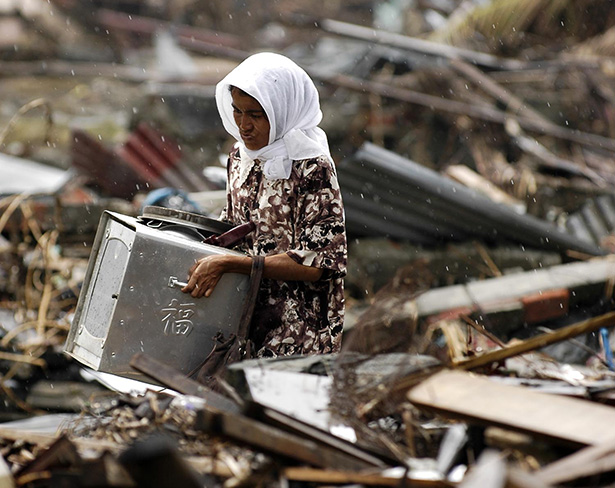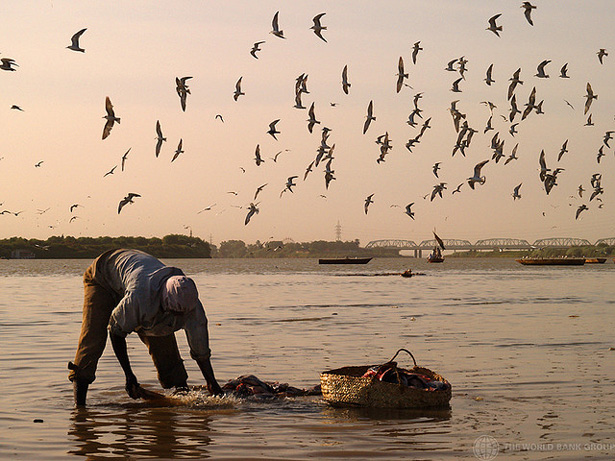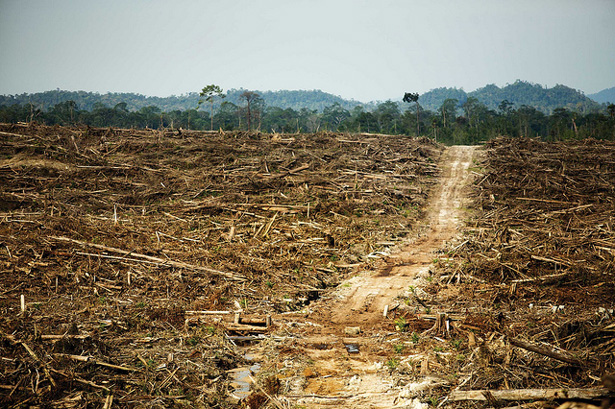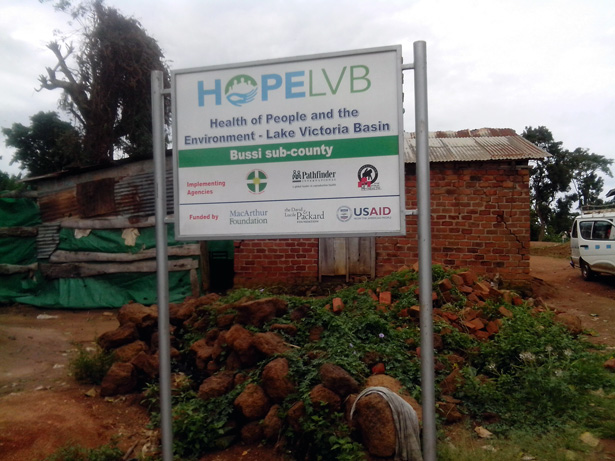-
On Building a Better (and More Resilient) World: Complexity, Community, and the Precautionary Principle
›April 3, 2013 // By Laurie Mazur
From the 2004 Indian Ocean tsunami to Superstorm Sandy, the last decade has seen an incredible array of natural disasters. Of course, disasters of all kinds are nothing new, but, thanks to the growing scale and interconnectedness of the human enterprise – and the damage we have done to the natural world – the frequency, scale, and consequences of today’s calamities are truly without precedent.
-
Stewart M. Patrick, The Internationalist
Environmental Security Goes Mainstream: Natural Resources and National Interests
›March 29, 2013 // By Wilson Center StaffThe original version of this article, by Stewart M. Patrick, appeared on the Council on Foreign Relations’ The Internationalist blog.
Not long ago, concerns about environmental degradation were marginal in U.S. national security deliberations. What a difference climate change has made. Foreign policy officials and experts are starting to recognize profound linkages between planetary health, economic prosperity, and international security. These connections were on full view last Wednesday, when the Council on Foreign Relations (CFR) teamed up with Conservation International (CI) to convene a symposium, “Global Resources, the U.S. Economy, and National Security.”
-
Making ‘Healthy People, Healthy Environment’: A Look Inside Integrated Development
›“We need dynamic approaches. We can’t just keep going with the single sector approach and hoping that a conservation project will do really more than it’s intended to do,” said ECSP’s Multimedia Editor Sean Peoples in an interview with Dialogue at the Wilson Center. “These people are living integrated lives. How can we have integrated solutions for them?”
-
UNEP Highlights Environmental Impacts on Health in Africa
›March 20, 2013 // By Carolyn Lamere
While it can be convenient to think of human health and the environment as unrelated silos, they are in fact closely related. The United Nations Environment Program (UNEP) recently released a report underscoring this point especially for Africa, where large numbers of people are directly reliant on natural resources for their livelihoods.
-
Peter Thomson on the Big International Environment and Energy Stories of 2013
›
Increasing energy demands around the world will mean a continuing focus on other fuel sources and climate change, said Peter Thomson of PRI’s The World, including the use of coal in countries like China and the safety of hydraulic fracturing and nuclear power. Other areas to watch include water, agriculture, and possible tipping points like dieback in the Amazon rainforest.
-
Michael D. Lemonick, Climate Central
U.S. Federal Climate Assessment: Energy, Water, Land Intertwined and Threatened
›January 31, 2013 // By Wilson Center StaffThe original version of this article, by Michael D. Lemonick, appeared on Climate Central.
Water resources, energy, and land use are so mutually dependent that climate-related disruptions to any one of them could lead to economically devastating ripple effects – especially as a growing population puts increasing strains on all three. That’s one conclusion of a recent report issued by a federal advisory committee charged with assessing how climate change has already affected the U.S., and what the future holds.
-
Jonathan Pincus, Foreign Policy
Indonesia: Stop Chopping, Start Learning
›January 24, 2013 // By Wilson Center Staff
The original version of this article, by Jonathan Pincus, appeared on Foreign Policy.
The Indonesian economy, which for so long had been an also-ran in the Asian growth derby, is getting good press these days. There’s no mystery why. While much of the world is struggling in the aftermath of the global financial meltdown, Indonesia continues to post annual economic growth rates in excess of six percent. What’s more, public debt is now less than 25 percent of GDP – down from 96 percent in 1999. And it is still falling relative to GDP: The budget deficit is only about two percent of GDP, among the lowest in the region.
-
Rachel Yavinsky, Behind the Numbers
Energy-Saving Stoves and Family Planning Benefit Women and Families in Rural Uganda
›January 23, 2013 // By Wilson Center Staff
The original version of this article, by Rachel Yavinsky, appeared on the Population Reference Bureau’s Behind the Numbers blog.
After 45 minutes on Lake Victoria in a wooden fishing boat, my PRB colleague and I arrived on Busi Island, one of the Ugandan sites of the HOPE-LVB (Health of People and the Environment – Lake Victoria Basin) project. PRB, who partners on this project, came to Busi Island to see HOPE-LVB in action.
Showing posts from category forests.








